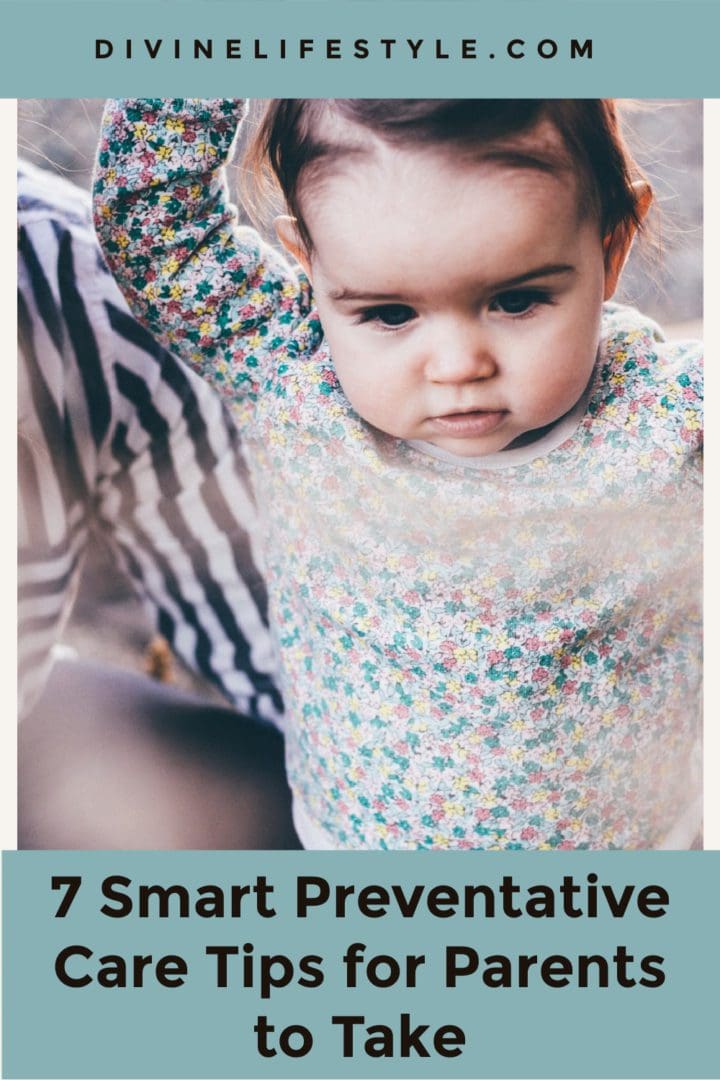7 Smart Preventative Care Tips for Parents to Take
posted by Stacie on March 10, 2021
// Comments Off on 7 Smart Preventative Care Tips for Parents to Take
7 Preventative Care Tips Every Parent Should Know
There’s no denying that childhood can be a bumpy ride, especially regarding wellness. It’s essential to practice preventative care from infancy to adolescence so your kids enjoy well-rounded, healthy lives. These tricks won’t eliminate every risk, but you can take steps to boost your children’s well-being. We hope that this 7 Smart Preventative Care Tips for Parents to Take post inspires you.

7 Smart Preventative Care Tips
Essential smart Preventative Care Tips for Parents
Build Good Sleep Habits
Everyone needs enough rest to get them through the day. If your kids don’t sleep well, they can experience several consequences that affect their physical and mental health. It’s also something that impacts performance in school, sports, and more. Do your best to set a nightly bedtime. This period can change on the weekends, but your children should go to bed around the same time so they develop a healthy sleep schedule. Aim for at least eight hours every night. If your kids have trouble falling asleep, remove electronics from their rooms and establish a routine to encourage sleepiness.
Supporting Our Mental Health
Prioritize Nutritious Meals
There’s nothing more important than introducing healthy eating to your kids. These habits will stick with them throughout their lives, so you can feel better about them making nutritious choices when they eventually leave home. Plus, you can prevent childhood obesity — which has reached epidemic levels in the United States in recent years. Make each meal as diverse as possible with proteins, vegetables, fruits, and grains. If you don’t have time during the week, you can prepare servings beforehand. This effort will make a difference in helping your children avoid weight-related problems as they become older.
Encourage Physical Activity
Like nutritious food, physical activity ensures your kids prevent childhood obesity. It’s a helpful way to improve cognitive functioning, which improves problem-solving and other mental abilities, as well. If you encourage exercise from a young age, your kids won’t dread physical activity in the future — and build healthy habits for life. Try to set aside at least 30 minutes daily for physical activity. Have your children play outside when possible so they can get enough vitamin D, which prevents osteoporosis and other diseases that could affect them as adults. It’s also a good idea to be physically active as a family, whether that means taking weekend hikes or playing street hockey together.
Making Sure Your Children Are Healthy Both Physically and Mentally
Teach Proper Hygiene
No one’s born knowing how to brush their teeth, so you should prioritize teaching your kids about hygiene. Make a point to show your children the proper ways to wash their hands, faces, and hair, as well. These tricks will not only boost their self-confidence, but they’ll also have a better chance of avoiding concerns such as cavities and acne.
Discuss Mental Wellness
It’s key to be open about mental health in your household. If you don’t discuss your emotions as a family, you might miss the various signs that point to depression, anxiety, and other illnesses that drastically affect your well-being. These conditions can last a lifetime, but your kids will only benefit when you take action sooner rather than later. Consider checking in with your children about their mental health every few weeks. This chat doesn’t have to be too in-depth. It can simply be a way to touch base. If you notice questionable behavior, you should contact your child’s pediatrician immediately.
Physical Activities for the Whole Family
Schedule Vaccinations
Ranging from influenza to hepatitis, your children can become infected with various illnesses. That’s why the Centers for Disease Control and Prevention have an immunization schedule for kids that starts at birth. These vaccinations will help them prevent diseases throughout their lives. Be sure to stay updated on the immunization schedule. If you miss a vaccination, you should contact your kids’ pediatrician so they can catch up. It’s a smart idea to set up and stick to annual physical exams so your children never miss the opportunity to get vaccinated.
Make Time for Friends
Remember that friendship matters during childhood, too. These relationships aren’t just helpful for figuring out how to be social. It’s also essential in allowing your children to learn valuable life lessons, including communication and teamwork. That’s crucial for emotional growth. While your kids don’t need a massive social circle, they should have a few close friends they trust. Encourage them to build friendships at school and extracurriculars, and let them hang out with their friends when possible. This experience is necessary for learning how to be a well-rounded person — and your kids can prevent issues such as isolation and loneliness later.
Every parent knows raising kids isn’t easy. There’s so much to do to raise healthy, happy children. However, you can set your children up for great adult lives when you prioritize preventative care. This way, they’ll avoid various physical and mental health issues down the line. We hope that this 7 Smart Preventative Care Tips for Parents to Take post inspires you. Good luck!

7 Reasons to Keep Your Family Healthy This Year
Comments Off on 7 Smart Preventative Care Tips for Parents to Take






